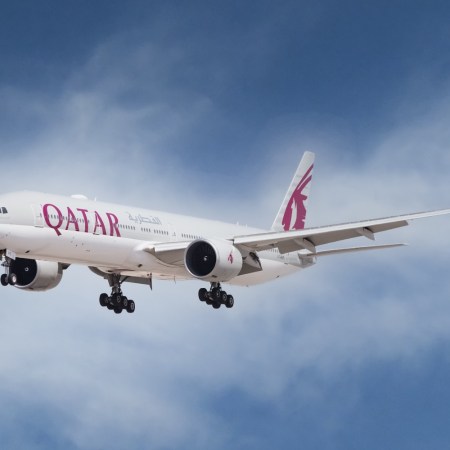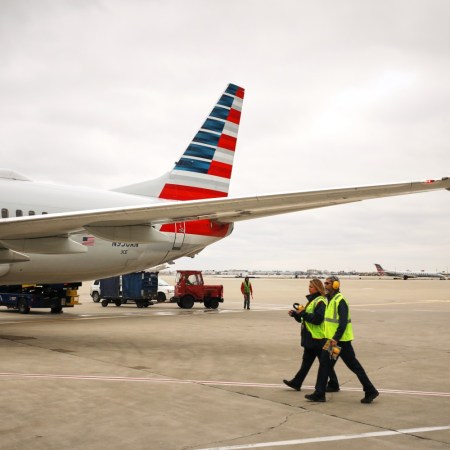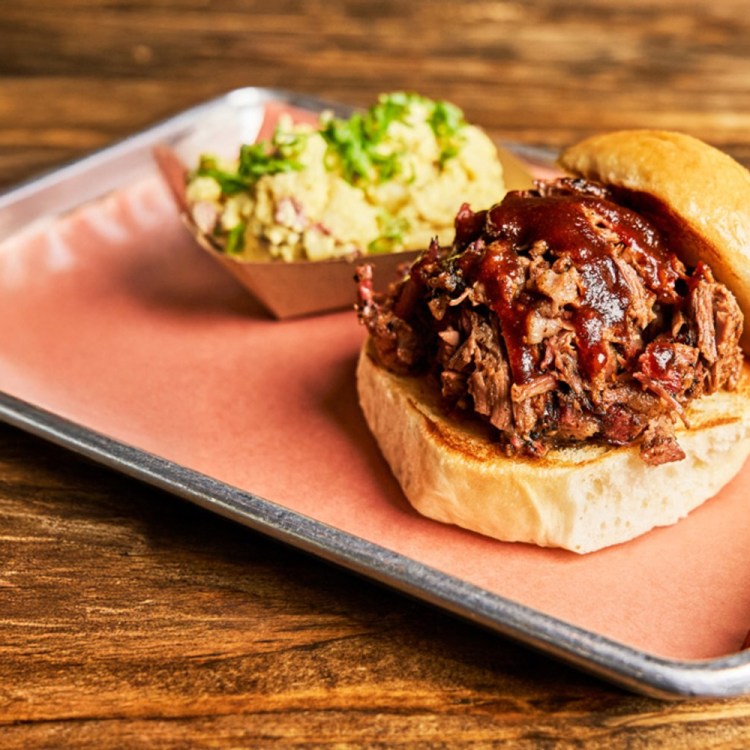Qatar Airways is the world’s best airline.
Again. In fact, for the fourth time since 2011. In second place? Singapore. Third? ANA. (They’re based in Tokyo.) Fourth? Emirates, dropping three places from the top spot in 2016.
We’re not done, though. In fifth place: Cathay Pacific (they’re based in — wait for it — Hong Kong). Sixth: Taiwan’s EVA Air. Seventh: the first carrier outside of the Middle East or Asia, Germany’s Lufthansa. And rounding out the top ten: the Abu Dhabi-based Etihad, China’s Hainan and Indonesia’s Garuda.
Spot a pattern? Or a missing flag?
That’s right: the American one.
An American carrier doesn’t show up on this list until 32nd place: Delta. Meditate on that for a minute: Delta is the best American airline in the world. Our second-place carrier — Virgin America — dropped from 18th place to 43rd and, P.S., won’t exist next year, after it’s absorbed by Alaska (which was itself 36). Three spots below Alaska, at 39, was JetBlue.
Skytrax, and its annual “World Airline Awards,” bills itself as “the world’s largest, annual airline passenger satisfaction survey,” with nearly 20 million surveys completed in three different survey languages. The survey itself grades everything from airline website and online booking to staff grooming and the cabin’s passenger assistance skills. (For the record, United comes in at number 78, two spots below the wholly detested British low-care/low-cost carrier Ryanair.)
This isn’t to say that Skytrax is free of its own bad marks: Etihad tried to withdraw from the survey in 2014, only to be told by the organization that it couldn’t prevent survey-takers from evaluating the airline. But it’s not the only prestigious airline award to favor Asian and Middle Eastern carriers: in the 2016 Travel & Leisure World’s Best International Airlines list, Singapore took the top spot for the 21st (yes — 21st) time in a row.
The predominance of Asian and Middle Eastern carriers is no accident. Perhaps the results would have been different if the only goal was profit, as U.S. carriers made a mint in 2016. (Sample headline: “American Airlines earns $2.7 billion 2016 net profit.”) And perhaps the results would have been better if the survey covered shareholder happiness, rather than passenger satisfaction. One thing the survey strongly suggests is that American carriers know how to make money — they just lack either the inclination or ability to use those profits to improve customer experience.
While this strategy yields profits in the short term, history tells us it’s not sustainable. Better reviews mean better business: If you were a business customer (the ones who basically cover the cost of the flight) headed to or from Europe, would you choose passenger-dragging United or Swiss? U.S. airlines are suffering from a branding problem based on a volatility problem — and if they can’t get their sh*t together, they’ll soon be watching from the sidelines as other, better carriers improve their stakes internationally — and leave us with garbage at home.
This article appeared in an InsideHook newsletter. Sign up for free to get more on travel, wellness, style, drinking, and culture.
























